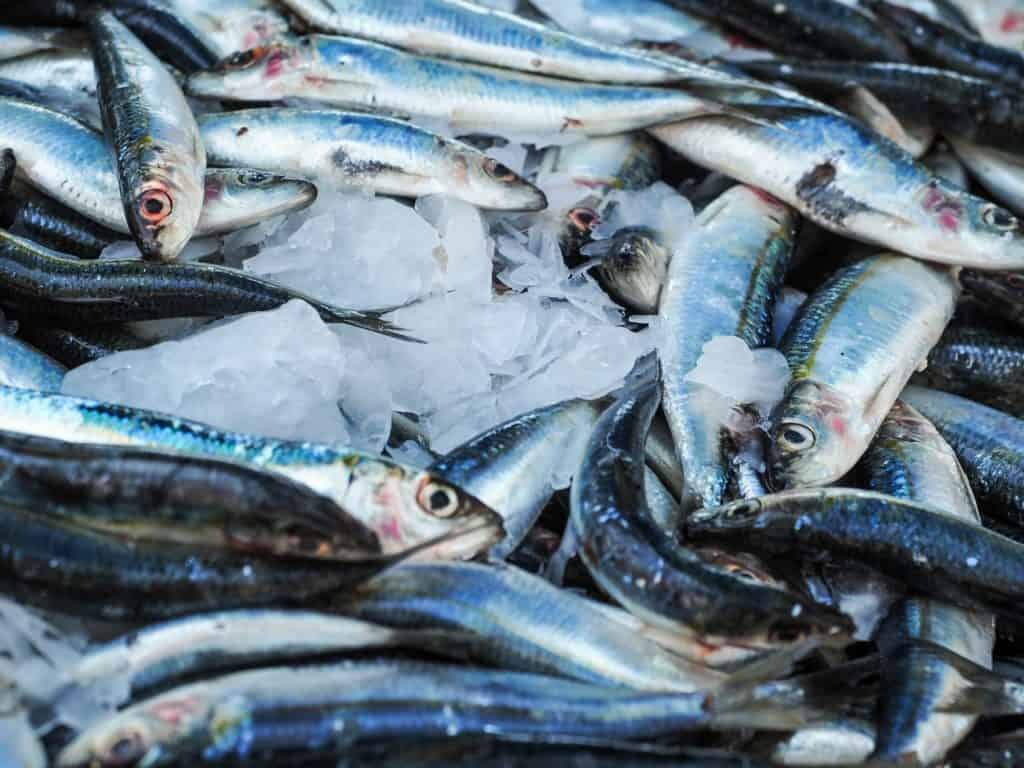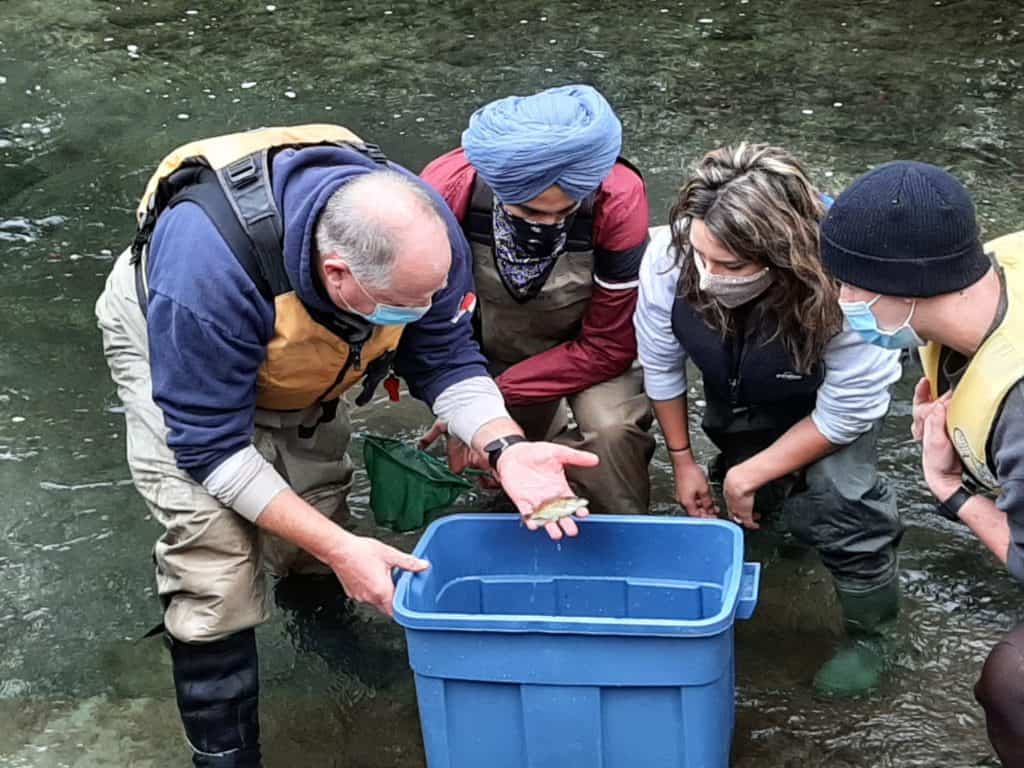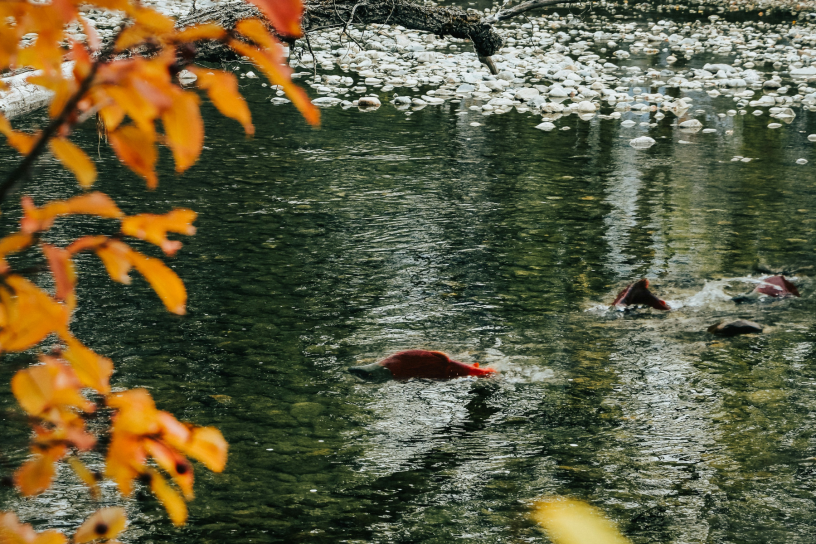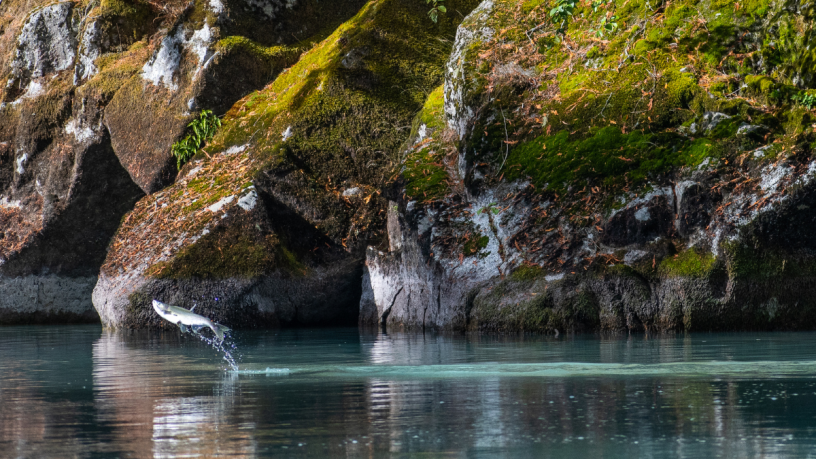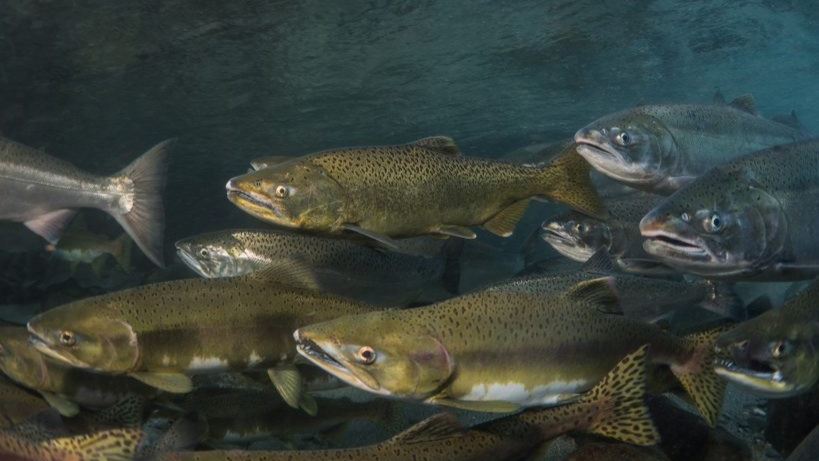
Avis de changement de statut de la recommandation Ocean Wise pour le saumon du sud-est de l'Alaska certifié par le MSC
Effective immediately Ocean Wise no longer Recommends Marine Stewardship Council
(MSC) certified salmon fisheries from Southeast Alaska due to concerns over the incidental catch of depleted southern Pacific salmon populations and the implications for endangered Southern Resident killer whales.
Voir les changements de recommandation ici.
The decision to update the Recommendation status of these products to Not Recommended was made based on Ocean Wise’s standard process for evaluating MSC certified Fisheries with additional guidance provided by the Salmon Advisory Panel.
Background
Ocean Wise provides consumers with accurate and up-to-date information on seafood sustainability. Recommendations are based on rigorous scientific assessment and adhere to strict decision rules, designed to ensure the long-term health of fish populations and ecosystems.
Dans les cas où il y a une chance raisonnable qu'une pêcherie ne soit pas durable, Ocean Wise se trompe en disant qu'elle n'est pas recommandée. Par exemple, Ocean Wise ne recommande pas les pêcheries MSC qui ont des conséquences négatives sur les espèces en danger en raison des prises accessoires potentielles.
Ocean Wise Recommends seafood sourced from MSC certified fisheries except in cases where any of the following situations apply for a unit of certification (UoC):
a. L'unité de certification (UoC) a ouvert une ou plusieurs conditions relatives aux interactions de la pêche
avec des espèces en danger, menacées ou protégées (ETP) ; ET/OU
b. Le cadre de référence basé sur le risque (RBF) du MSC a été utilisé pour évaluer le principe 1 de la norme MSC ;
ET/OU
c. Il existe une ou plusieurs objections formelles des parties prenantes à la certification ; ET/OU
d. Le groupe de clients certifiés est impliqué dans un ou plusieurs procès récents ou en cours concernant directement
l'activité de pêche ; ET/OU
e. Des détenteurs de droits s'opposent à la certification (uniquement pour les pêcheries canadiennes).
Pour en savoir plus sur les règles de notation et la méthodologie d'évaluation de Ocean Wise, cliquez ici.
Formal objections lodged against the MSC certified Southeast Alaska Fishery and ongoing
lawsuits break Ocean Wise’s decision rules and are therefore Not Recommended.
What objections have been raised to MSC?
This fishery has been Under Review since May 2024 due to a formal objection launched by three BC-based conservation organizations (Raincoast Conservation Foundation, Watershed Watch, and Skeena Wild) outlining several critical issues affecting its sustainability. The objection states that the MSC’s Conformity Assessment Body (CAB) did not sufficiently consider scientific evidence related to the following factors:
Stock Interception: This fishery is intercepting and harvesting salmon stocks inseparable or practically inseparable from B.C., Washington, and Oregon stocks. Some of these stocks are destined for rivers in B.C. and contribute to the future survival of Canadian salmon runs. Evidence suggests that a significant proportion of these stocks are harvested within Southeast Alaska fisheries and are currently outside of their biologically based limits, compromising southern ecosystems.
Bycatch: In District 104, purse seine fisheries primarily target other species but incidentally harvest sockeye salmon, most of which originate from non-Alaskan rivers. Many of these sockeye populations are at low abundance levels. Additionally, drift gillnet, seine, and troll fisheries in Southeast Alaska encounter at risk species such as Steelhead and others that are outside of their biological limits.
Endangered Species Impact: Southeast Alaska fisheries catch and retain Chinook salmon that feed endangered Southern Resident Killer Whales, therefore directly impacting prey availability that supports this at-risk population. In August 2022 a court ruling stated that the fishery was in violation of the Endangered Species Act (ESA) for hindering the recovery of endangered Southern Resident killer whales and threatened Chinook salmon.
Inadequate Management to Prevent Overfishing: Although subject to conditions created by the Pacific Salmon Treaty, evidence suggests that this Alaska fishery takes a significant proportion of the catch, or total run, for some stocks that are outside biologically based limits. Examples include the catch of Late-Babine-Wild sockeye salmon in the Southeast Alaska fishery that have been over-exploited and below healthy limits in recent years. Further, lack of appropriate record keeping for bycatch in the Southeast fishery has led to likely underestimations of mortality for sensitive stocks.
Publié le 15 juillet 2024 par Kim Bricker
